Views of China are more unfavorable than favorable in the 25 countries surveyed. In most countries, people also lack confidence in Chinese President Xi Jinping to do the right thing regarding world affairs.
However, positive views of China have increased in 15 of the 25 countries since last year, and confidence in Xi is up in 16 countries. Views of both China and Xi tend to be more positive in the nine middle-income countries surveyed than in the 16 high-income countries.
Favorability of China
A 25-country median of 36% of adults have a favorable view of China, compared with 54% who have an unfavorable view.
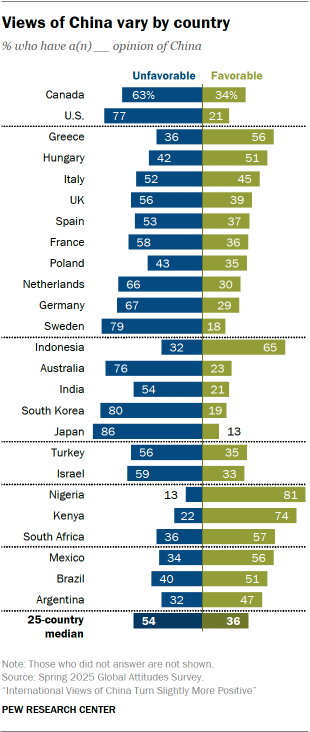
- Views are among the most negative in the Asia-Pacific region. In Japan, only 13% of people have a favorable view of China, as do around a quarter or fewer in Australia, India and South Korea. Indonesia, however, is an exception, with roughly two-thirds reporting a favorable opinion of China.
- The balance of opinion in Europe is also negative. About four-in-ten adults or fewer have a positive view of China in most of the European countries surveyed. Only in Greece do a majority have a favorable opinion.
- In both Turkey and Israel, around a third have favorable views of China.
- In the three sub-Saharan African countries surveyed (Kenya, Nigeria and South Africa) majorities have a favorable view of China.
- And in each of the three Latin American countries surveyed (Argentina, Brazil and Mexico) more people have a positive view of China than a negative one.
The more positive views in sub-Saharan Africa and Latin America reflect a broader pattern: In countries with lower gross domestic products per capita, people tend to have more positive views of China.
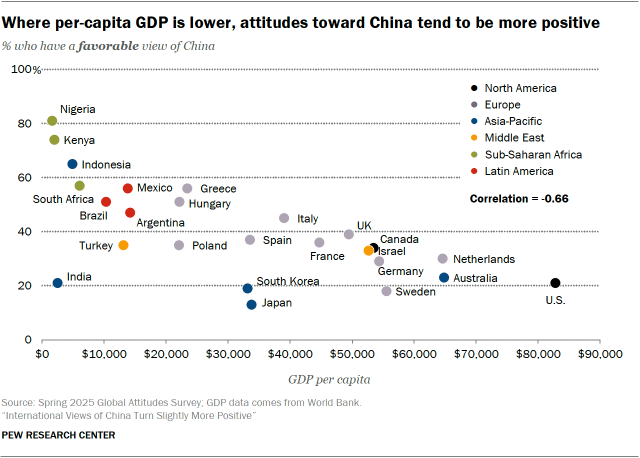
Views of China over time
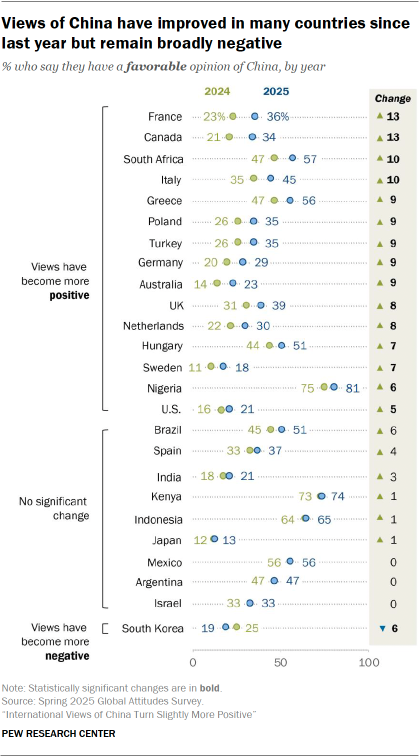
Views of China have become more favorable since 2024 in 15 of 25 countries surveyed. This includes double-digit increases in places like Canada and France (+13 points) as well as Italy and South Africa (+10).
In South Korea, however, the share of adults with a favorable view of China decreased from 25% in 2024 to 19% in 2025. This is the only country surveyed where this share has dropped significantly since last year.
Related: Negative Views of China Have Softened Slightly Among Americans
Views by age
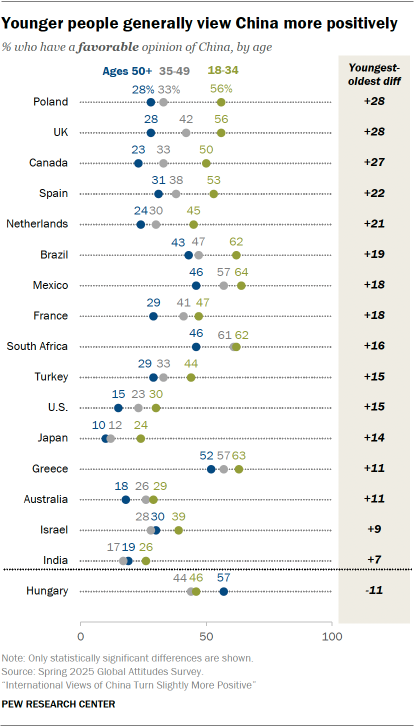
In most countries, younger people have more favorable opinions of China than older people.
Some of the largest gaps are in Poland, the United Kingdom and Canada, where adults under 35 are 27 or 28 points more likely than those ages 50 and older to view China positively.
Views by ideology
In most countries, ideology is not closely related to views of China. (For more on how we measure ideology in our cross-national surveys, read this report’s methodology.)
But in Israel, Mexico, South Korea and the U.S., people who place themselves on the ideological left (“liberals” in the U.S.) have more positive views of China than those on the ideological right (“conservatives” in the U.S.). For example, 28% of South Koreans on the left view China positively, compared with 12% of those on the right.
In Hungary, however, the opposite is true. Roughly two-thirds of Hungarians on the right have favorable views of China, compared with 43% in the center and 37% on the left.
Confidence in Xi
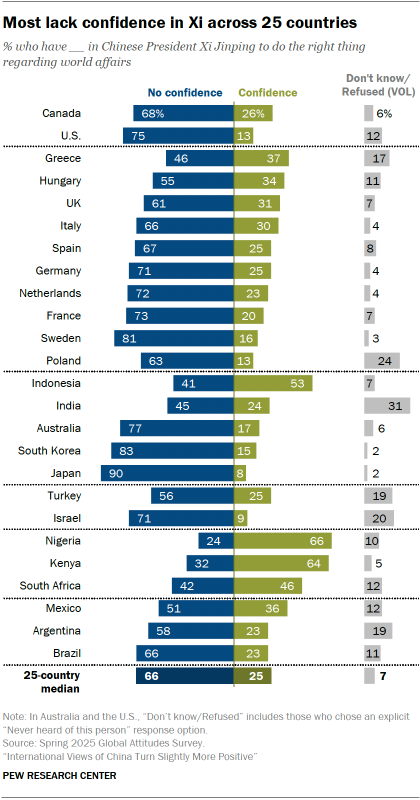
Relatively few people surveyed have confidence in Xi to do the right thing regarding world affairs. A 25-country median of 25% of adults have a fair amount or a great deal of confidence in him, while 66% have not too much or no confidence at all.
- Ratings of Xi are highest in Kenya and Nigeria, where about two-thirds of adults have confidence in the Chinese president. Views are more mixed in South Africa.
- In Europe, Latin America and North America, assessments of Xi are more negative than positive. The same is true in Turkey and Israel.
- People in four of the five Asia-Pacific countries surveyed mostly lack confidence in Xi. For instance, only 8% in Japan have confidence in him. But in Indonesia, more have confidence in Xi than not (53% vs. 41%).
Overall, confidence in Xi is lower in high-income countries than in middle-income ones.
Views of Xi over time
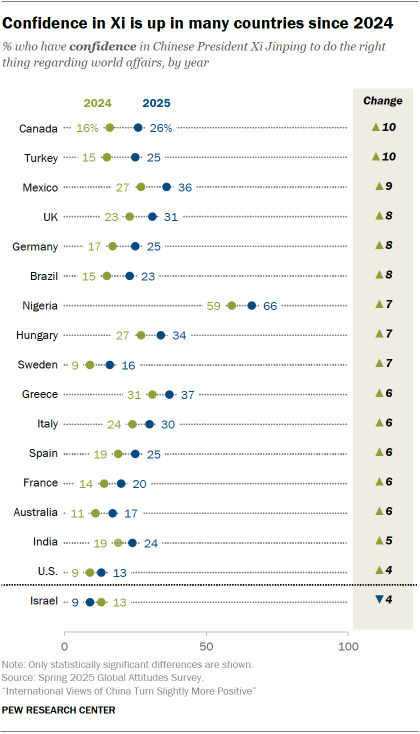
While majorities in most countries surveyed have little or no confidence in Xi to do the right thing regarding world affairs, confidence in him has increased since last year in 16 of the 25 countries surveyed.
This includes increases of 10 points in Canada and Turkey.
These changing attitudes toward Xi reflect another pattern: The share saying they “don’t know” whether they have confidence in him has fallen in some countries. And in South Africa the share who are unsure or decline to answer has dropped so significantly since 2024 that both positive (+10) and negative (+12) ratings of Xi have increased.




